Joe Biden, the ‘consistently inconsistent’ ally for racial justice and civil rights

In 2017, after Sayfullo Saipov allegedly used a truck to kill eight people in New York in an Isis-inspired attack, Donald Trump instantly lashed out.
“SHOULD GET DEATH PENALTY!” Mr Trump blared on Twitter, violating norms of prosecutorial independence.
Six years later, Mr Saipov is on trial, and Joe Biden has taken a different – though not that different – approach.
Mr Biden may be the first US president openly against the death penalty, and his DoJ may have temporarily halted some Trump-era execution requests, but federal officials are still seeking Mr Saipov’s execution and many more killings in death chambers around the country.
This is symptomatic of the larger Biden record on civil rights and racial justice: a strong break with the rhetoric of the Trump administration, but a lack of lasting changes that would alter the status quo, according to experts.
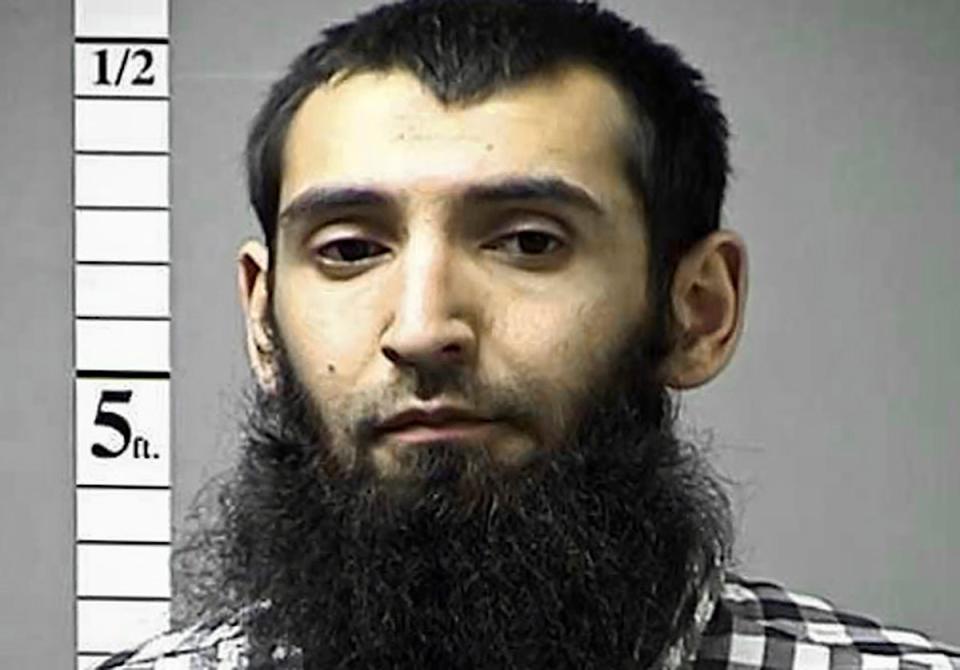
‘Two steps forward, one step back’ on executions
It’s easy to look like an abolitionist next to Donald Trump, who revived federal executions and oversaw a spree of 13 killings while in office, the most in modern US history.
In July, the Justice Department put federal executions on hold until it can review Trump-era rules changes that sped up the sentences, but look below the surface and the Biden administration has continued to allow executions, despite the president and the attorney general acknowledging the deep innocence issues and racial biases of executions in America.
“They have been consistently inconsistent,” according to death penalty expert Professor Austin Sarat of Amherst College.
The DoJ continues to seek death sentences in high-profile terror cases like that of Mr Saipov and white supremacist gunman Dylann Roof, and it continues to defend death sentences imposed by past administrations.
Legislative action looks unlikely in a GOP House, but according to Robert Dunham of the Death Penalty Information Center, the president could still “end the federal death penalty for a generation” by commuting the sentences of the 44 federal death row inmates to life in prison.
Otherwise, the president’s stance won’t mean much to future death row residents once he leaves office.
“The Biden executions will take place under future administrations, but make no mistake, they will be Biden executions,” Mr Dunham told The Independent.
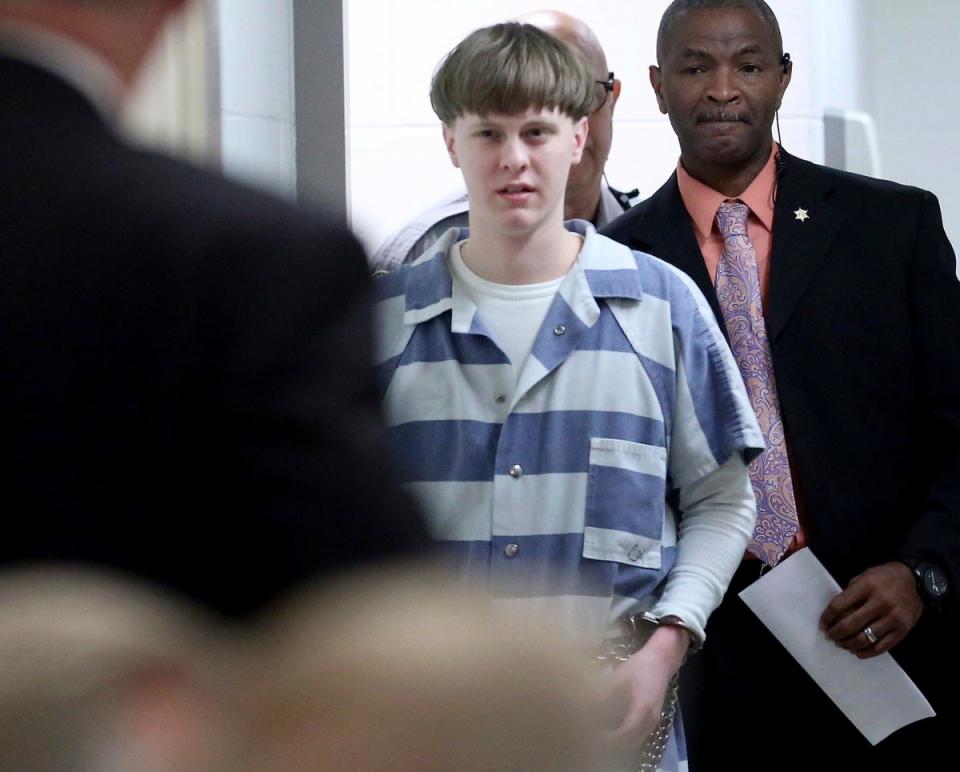
Reforming police — or enriching them?
Mr Biden took office not long after the police murder of George Floyd and the summer 2020 racial justice uprisings, estimated to be the largest protests in US history. The nation was hungry for change. It was also worried about crime, as murders spiked during the pandemic.
Decisions on policing are mostly in the hands of local officials, but even with his limited powers over law enforcement, Joe Biden was “less than helpful,” according to Samuel Sinyangwe, a leading racial justice advocate and founder of the Mapping Police Violence project.
Under Mr Biden, he says, the White House has continued giving military weapons to local police forces, withholding federally collected police use-of-force data, and increasing funding for officers, all while attempting to claim the mantle of police reformer.
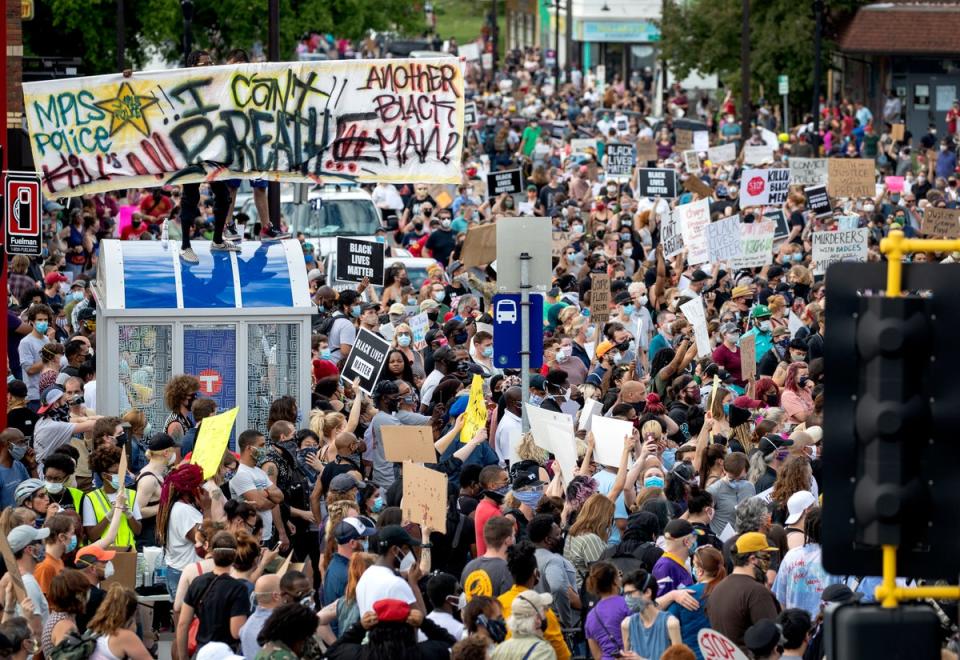
The DoJ has launched investigations into police departments accused of high-profile misconduct, like Minneapolis and Louisville, but those are just two out of the estimated 18,000 police agencies in the US.
“They’re trying to have their cake and eat it too,” Mr Sinyangwe says.
Despite Joe Biden hosting the Floyd family at the White House, and challenging lawmakers to pass police reform by the one-year anniversary of the Minneapolis man’s murder, Democrats have been unable to pass the George Floyd Justice in Policing Act, which would ban chokeholds and end “qualified immunity” for officers accused of using excessive force.
In the absence of a bill, Mr Biden and his party have turned on the money spigot instead of making police less deadly, even as police shootings are at a decade-long high. The Democrats’ most recent funding bill contains over $100m more for hiring law enforcement officers than training them in community policing and de-escalation tactics. Numerous local police departments used their slice of a previous $350m pandemic relief package to buy tasers and guns, and to expand jails.
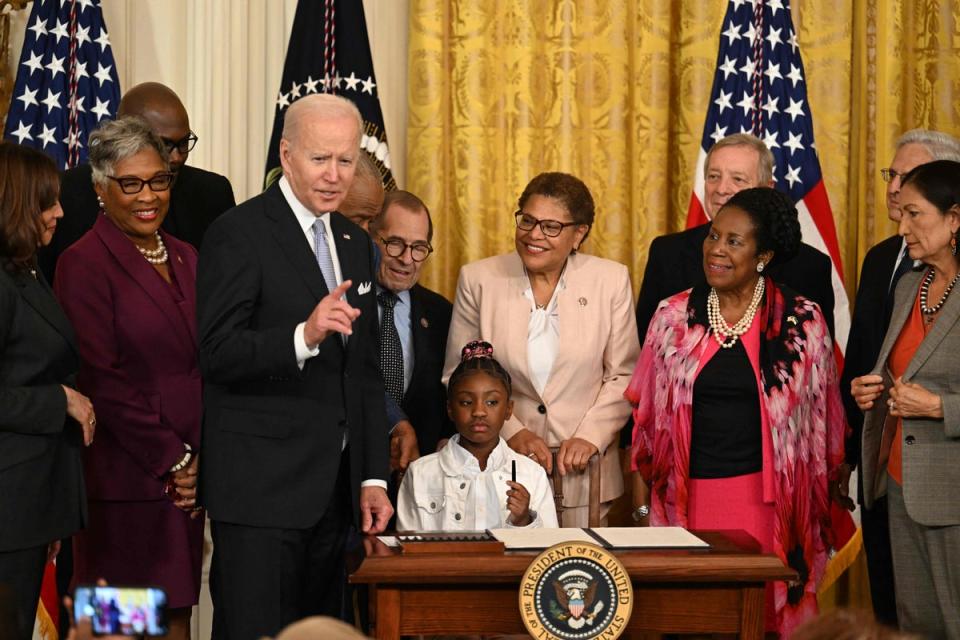
“There’s plenty of research around more officer hiring being directly associated with an increase in the arrest of civilians, particularly Black people, for low-level, non-violent offences, which increase incarceration, which causes a whole lot of harm for communities,” Mr Sinyangwe adds.
Even steps praised by activists have had their complications. A December DoJ memo intended to end the infamous, racially biased crack-cocaine sentencing disparity tanked negotiations with Republicans in the Senate on a deeper legislative fix, as legislators were reportedly nearing a deal.
‘An unprecedented threat to democracy’
The Biden administration was born in a multi-layered democratic crisis, from a pandemic that radically altered how Americans vote, to a predecessor who trashed US election integrity at every chance he could, to an armed mob that tried to stop the election certification on January 6.
Sarah Brannon of the ACLU’s Voting Rights Project says the president has used his bully pulpit, as well as more under-the-radar steps, to help stem the bleeding that Trump and the 2020 election left behind when it came to faith in and respect for US elections.
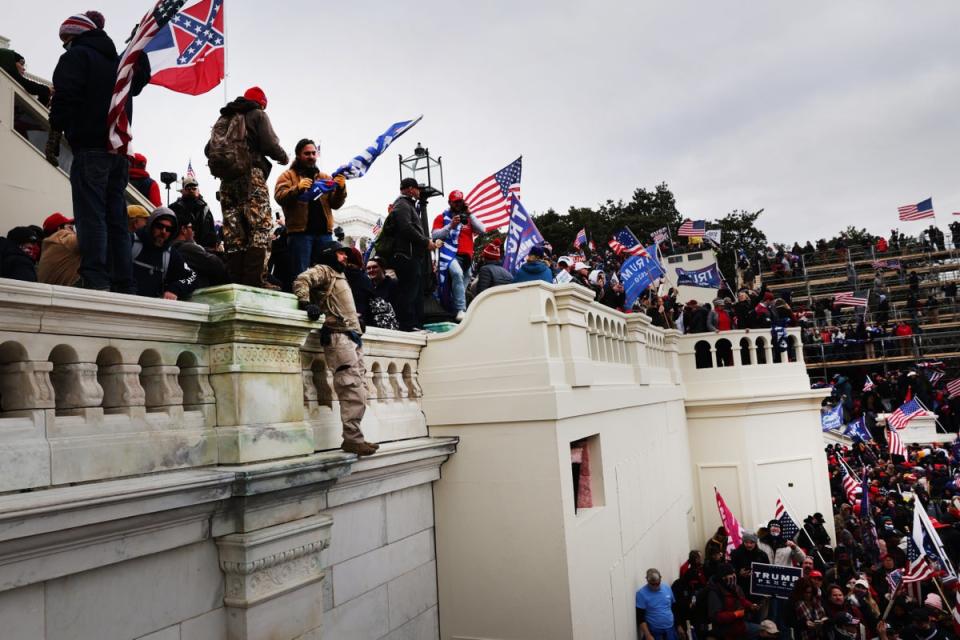
“President Biden stepped into an unprecedented threat to democracy,” she tells The Independent. “He’s done a lot to improve things.”
Following the non-stop conspiracies of the Trump years, Mr Biden has made restoring civic trust a key issue, calling Maga election denialism a form of “semi-fascism” that is “destroying America” in a marquee address last summer. He also appointed DoJ leadership that’s gone “above and beyond,” according to Ms Brannon, to proactively intervene in voting lawsuits where state officials are trying to limit the vote in places like Arizona, Georgia, and Texas.
Even after eliminating the fillibuster in the Senate got a belated endorsement from the president, Democrats haven’t been able to pass the John Lewis Voting Rights Act, a restoration and expansion of the landmark 1965 Voting Rights Act, which banned racist poll tests and allowed federal officials to oversee local jurisdictions with histories of disenfranchisement. The original VRA was gutted by the Supreme Court in 2013 and many of its key provisions haven’t been reinstated.
Kendra Davenport Cotton, CEO of the New Georgia Project, a group seeking to expand voting rights in the hotly contested state, says the Biden administration has often said the right thing when it comes to voting rights, but seems unable or unwilling to articulate a forceful plan to protect them by law.
“Progressives in this country are tired of them wishing that something will change, especially when we are delivering these electoral outcomes with very strong headwinds,” she says. “A goal without a plan is a wish. If you’re not articulating clear policies you want to see, we’re just wishing.”
When it comes to civil rights in America, even leaving the status quo in place, as Joe Biden has often done, can look like erosion.
